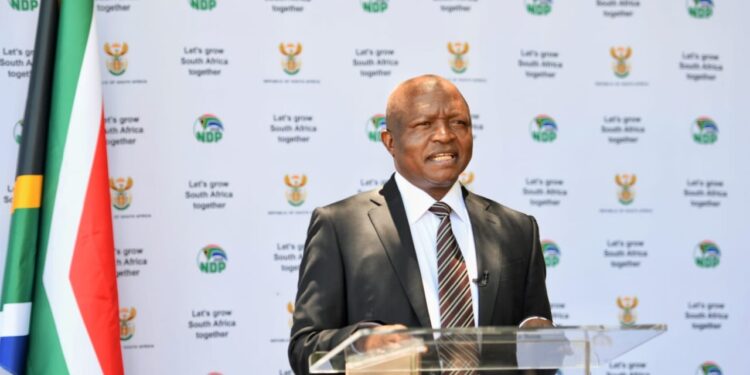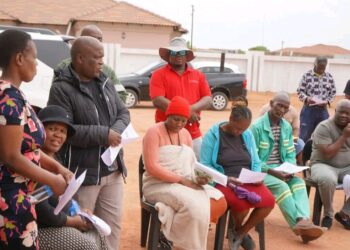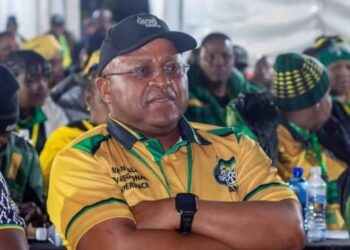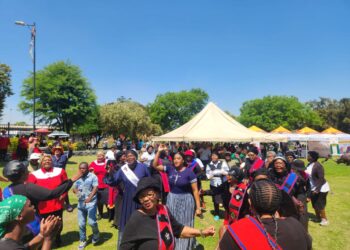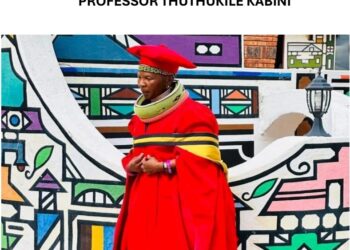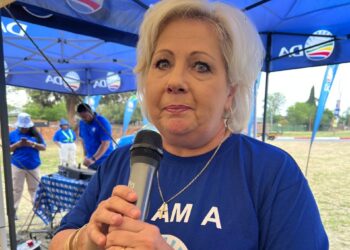MPUMALANGA – On the afternoon of Thursday, 03 July, South Africans and the world at large received the news that David Mabuza, a former Deputy President of South Africa, had succumbed to breathing difficulties while in a hospital in Gauteng.
He was 64. And frankly speaking, he died too young given the calibre of South African politicians who cling to power until into their 80s and 90s. Mabuza’s impact on South African politics is undeniable, but his tenure was also marred by allegations of corruption and other controversies. Born on 25 August 1960, in Phola, Mpumalanga, Mabuza began his journey as a teacher, earning a teaching diploma from Mgwenya College of Education in 1985 and later obtaining a Bachelor of Arts degree from the University of South Africa (UNISA) in 1989. His early involvement in the Black Consciousness movement and the Azania Student Organisation (AZASO) ignited a passion for politics and community engagement.
He rose in the Mpumalanga ranks and finally became Mpumalanga Premier in 2009 to 2018, focusing on rural development and public health in the province. Having been a teacher before moving on to lead the Department of Education as MEC during the dawn of democracy (1994 to 1998), Mabuza also focused on expanding access to education.
Mabuza’s rise to prominence in South African politics was marked by his strategic alliances and calculated moves. When Mabuza was Premier of the province, he consolidated his power by making the ANC in Mpumalanga so powerful that it could tilt the scope of national politics and influence who could become a president of the ANC and the country as per the ANC’s policy. In 2009, he supported Jacob Zuma’s successful campaign to replace Thabo Mbeki as ANC President.
He was a man of too few words but his actions did the talking.
The same Mabuza who became a formidable ally in the radical economic transformation (RET) faction of the ANC to help Zuma to become president, was the same who changed on the eleventh hour against the RET faction to support the ANC leadership race in President Cyril Ramaphosa’s favour, cementing his position as Deputy President of the ANC and later, the country. Mabuza served in this role from February 2018 to March 2023. One can hardly point out any significant milestones Mabuza has contributed while in the position of Deputy President of South Africa.
There is an argument that he had had too many enemies within the ANC and was isolated by the radical economic transformation (RET) faction in the ANC due to his game-changing move at the ANC’s 54th national conference in Nasrec when he aborted the RET faction and, yet again, was sidelined by the Ramaphosa’s faction, which threaded with caution towards him. President Ramaphosa paid his tribute, saying: “We are saddened today by the loss of a leader who was grounded in activism at the early stages of his political career and who came to lead our nation and shape South Africa’s engagement with our continental compatriots and the international community in his role as Deputy President.”
The Mpumalanga Provincial Government, where he spent most of his leadership journey, has also shared their tribute. “As former Premier of the province, during his tenure, he steered the ship, put important systems in place, towards ensuring that Mpumalanga becomes truly the province of the rising sun that works hard for its people,” said the Speaker of the Legislature, Lindiwe Masina. As Deputy President from 2018 to 2023, Mabuza faced several controversies, including allegations of corruption, fraud, and involvement in political killings – such as the deaths of Jimmy Mohlala, the Speaker of Mbombela Municipality, who was shot dead in 2009, and Sammy Mpatlanyane, a government official, who was also assassinated.
These incidents were allegedly connected to Mabuza’s efforts to consolidate power and silence critics. These are all allegations he denied. Despite these allegations, Mabuza remained a key figure in South African politics.
Mabuza had been battling health issues for several years, including diabetes and hypertension. In 2015, he was allegedly poisoned by political rivals and had to seek medical treatment in Russia.
He leaves behind a legacy of influence and controversy.











